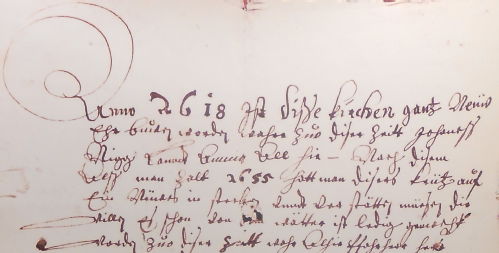Parish Symposium 2016 – Reflecting the Parish
Materials for the Meeting held on Saturday 7 May 2016 at the University of Warwick

Co-organized by
Beat Kümin
Department of History, University of Warwick, U.K. &
Ellen K. Rentz
Department of Literature, Claremont McKenna College, USA
While previous symposia focused on specific parish records and their contents, the 2016 meeting took a broader view, focusing on ‘reflections’ of the parish more generally – its nature, its characteristics, its meaning.
Keynote:
‘In the Nave with Chaucer’ – Ellen K. Rentz, Claremont McKenna College
Research papers:
-‘Out of a Christian dewtie’: Child care and parish networks in seventeenth-century Scotland – Chris Langley, Newman University, Birmingham
-“noþing ells but kepe riȝt mesure”: Cultivating Moderation in Eating and Drinking for the Community in the Book of Vices and Virtues – Sunyoung Lee, Arizona State University
-‘Parish registers and religious communities in south Germany’ – Eva Marie Lehner, Universität Duisburg-Essen
-‘The Manor and the Parish: Local Organisation in the Sixteenth Century Through the Example of the Blount Family’– Elizabeth Norton, King’s College, London
-‘Perceptions and Expectations of the Elizabethan Clergy Wife: Evidence from within the Parish’ – Anne Thompson, University of Warwick
-‘The Gotlandic Parish. Concepts of identity and social differentiation’ – Jörg Widmaier, Eberhard-Karls-Universität, Tübingen
Project presentation:
-‘Parish registers in the Interregnum’ – Andrew Foster, University of Kent
The symposium engaged with a wide variety of genres and texts including, but not limited to: literary works, penitentials, parish registers, church buildings, testimonials, tombs, monuments etc to address questions like: How did contemporaries understand and envisage the purposes, workings, and problems of parish communities, in different contexts and at different points in time? What constituted the “ideal” parish, and who – clergy, patrons, parishioners – was in charge? Were there alternative models of pastoral care? Alternatives to the parish more generally? How did different genres conceptualize the parish, and to what end? And what about the parish of posterity: how would future generations envision its nature and function?
SYMPOSIUM REPORT BY RUTH BARBOUR: ONLINE AT HSK / WORD VERSION
#PaSymp16 TWITTER FEED FOR VISUAL IMPRESSIONS
For further information contact b.kumin@warwick.ac.uk
Illustration: Extract from reflections on parish history at Gersau in present-day Switzerland
(Tower Capsule Chronicle of 1655; District Archive of Gersau)
